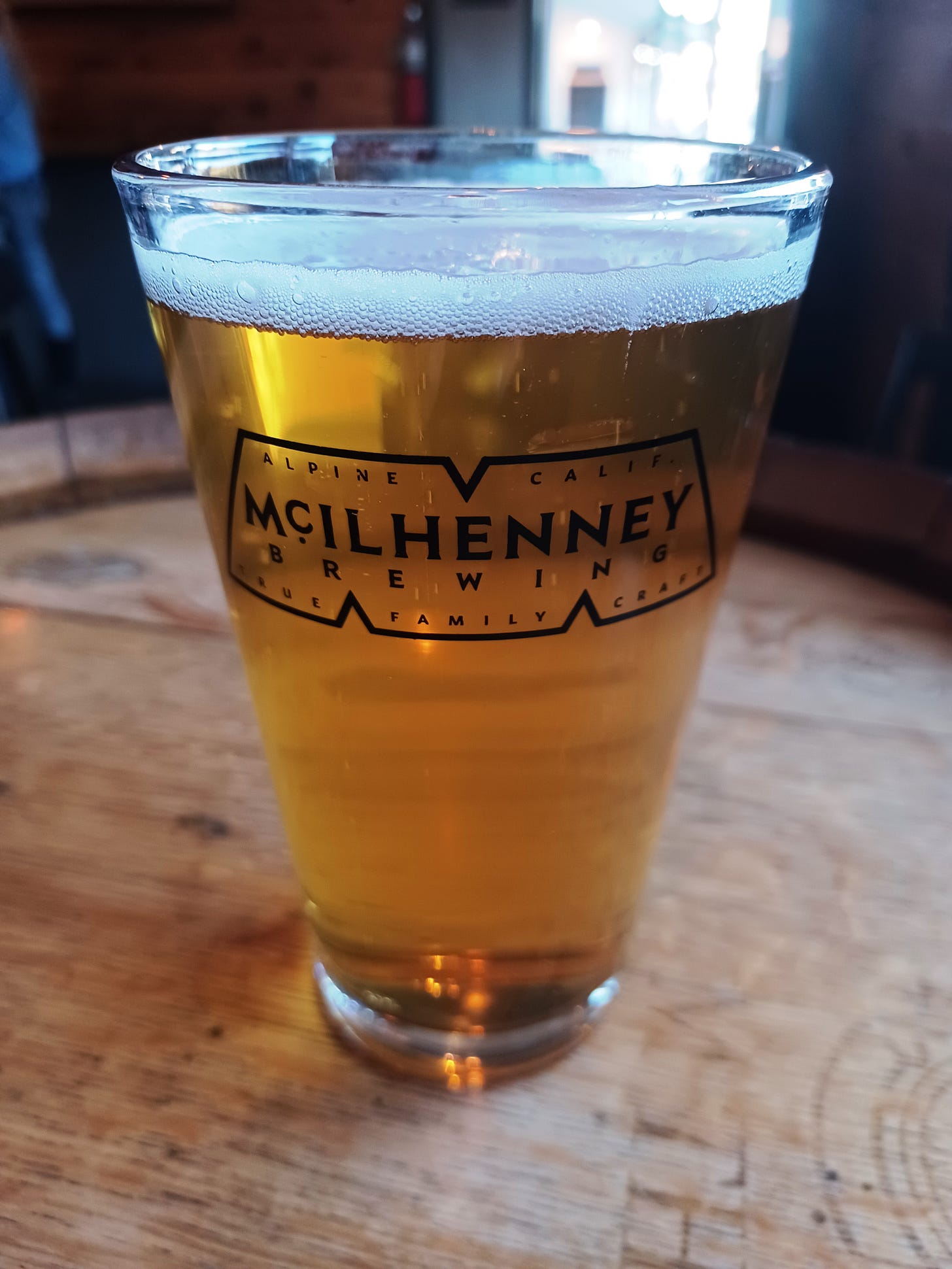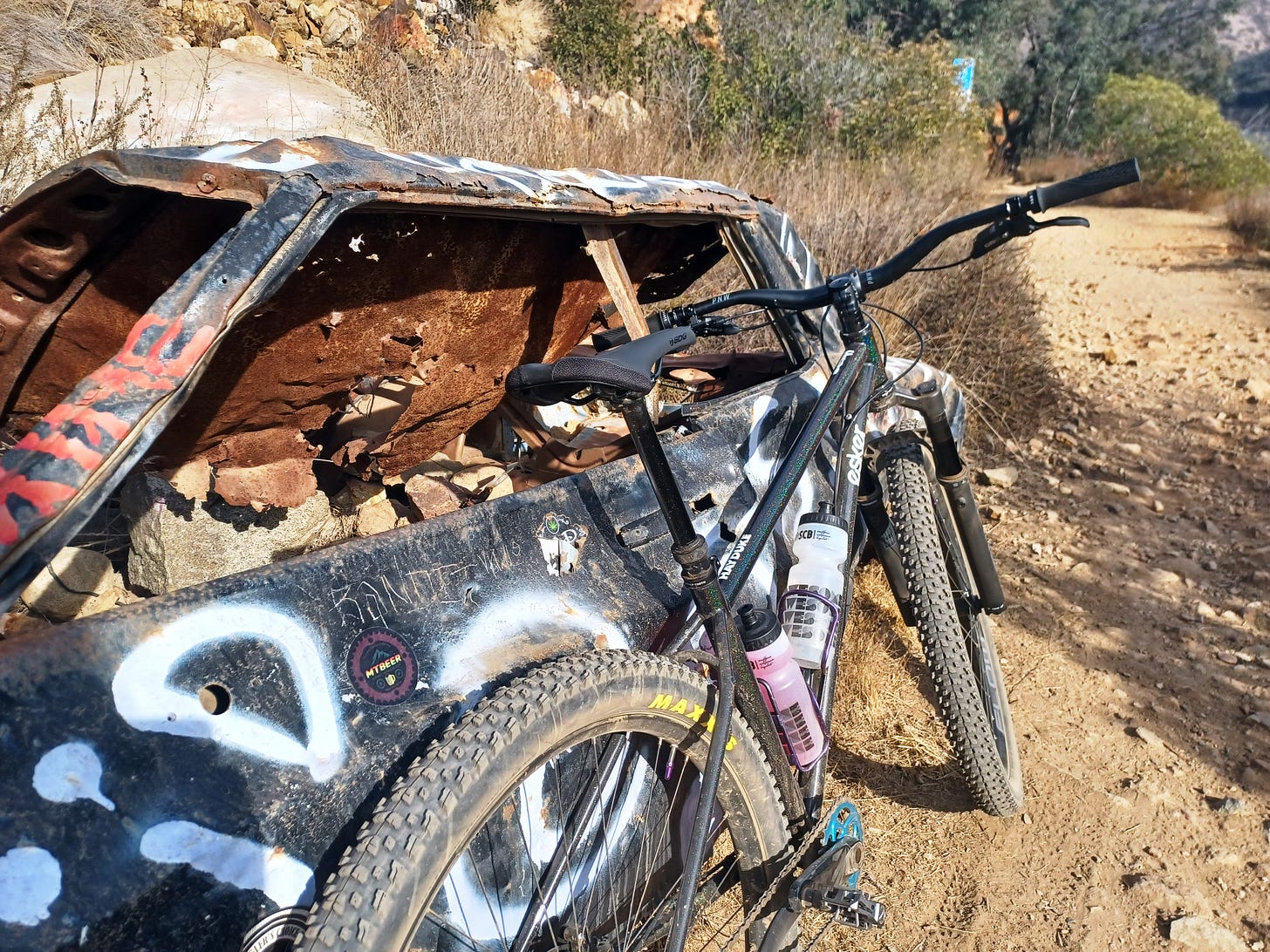Well, this is it, the last installment of Fully Rigid. Oh, I’m sure I’ll post similar thoughts from time to time, but the column is dead at the bottom of this post.
**********
Mountain Biking is at a Weird Place: Where Do We Go from Here? (Part 4 of 4)
Pandora’s Box.
Opened up a can of worms.
Can’t put the genie back in the bottle.
???
Yes we can.
Mountain biking organizations can work with land managers in recognizing the woes of their ways. They can start by advocating for no e-bikes signs to be placed at trail heads where appropriate. That’s a budgeting issue. Advocate for it.
Where I live, San Diego, no e-bikes signs have been removed from some trail heads. Put them back up. Advocate for it.
What’s more, do mountain biking organizations with 501c3 status, which most are, have an obligation to follow federal lands policy? Should they, from an ethical perspective?
If access to public lands is essential to the existence of mountain biking, and it is, shouldn’t mountain biking organizations that try to represent e-bikers (too) work with land managers in “getting the message” out about e-bikes, as in maybe something like: posting publicly (social media/newsletters) reminders to their memberships of where e-bikes are not allowed to be ridden (within the geographic region that the organization represents)?
Wanting only Class 1 was not a good strategy. That’s now proven. It didn’t work.
Throttle bikes on trails are not good for mountain biking advocates.
Mountain biking and e-biking are not at all the same sport.
Moreover, if land managers can’t tell the difference between e-bikes and mountain bikes and they don’t care a whole lot anyway, or don’t have the capacity to begin to care, or maybe they care but throw their hands up in exasperation about enforcing Class 1 only, why are mountain biking organizations advocating for e-bikes? Wouldn’t it all be the same if the official policy was no e-bikes allowed? I mean, if no one is actually enforcing it, why change the policy?
Cart before the horse?
Industry influence? Special interests?
Does “the industry” want e-bikes permitted on trails so they can better “sell” bikes that most people truly do not need?
If you have a medical need for an e-bike, of course I support you.
If you’re concerned about your access as you age, I hear you. Getting old sucks, in some ways. I bet you can find a reason, or some Dr. can, to keep your access. What I’m getting at is that I don’t think you’ll lose access, per se.
(Let’s remember — land managers are likely not going to check for anything. So, we’re back to where we started.)
What does all this mean, if anything at all?
Mountain biking, as it’s been historically defined, will not be dead. It will continue on in spirit, a spirit kept alive by mountain bikers.
What baffles me, though, is that mountain biking organizations and the industry want to celebrate Marin County/Crested Butte/Klunkers while also celebrating a battery-powered bike, suggesting that it’s all the same thing/sport. If that were an actual party to attend, it would be like pickle ballers showing up at a tennis celebration.
On the trail, I personally will not disparage you. (Well, if you’re a throttle biker, I might throw a scowl your way!) I’ll wish you well and even offer assistance with your navigation. If you’re stopped by the side of a trail, I’ll ask you if everything’s okay, like I do with mountain bikers. And I’ll do it with a smile and wish you well.
Again, though, e-bikers are not mountain bikers. It’s time for the industry and all of its “friends” to stop acting/promoting that we are all the same. We might all be trail enthusiasts, but hikers are not trail runners are not mountain bikers are not e-bikers are not equestrians.
It’s time for mountain biking organizations to get back to their actual mission statements. You can’t represent mountain bikers and e-bikers at the same time. You tried and now knowing what’s happened with public lands decision making in Arkansas, it’s time for mountain biking organizations to be just that: advocates for mountain biking.
**********
That’s it. That is the final installment of Fully Rigid. Four years, some 48 columns, is now a thing of the past. Year 5 of Paseando MTB will not include this column.
To support independent writing about mountain biking and indie beer, as well as receive discounts to MTB-related businesses and breweries, use this link below to get the $10.20/year subscription rate. Paseando MTB is sponsor and corporate free writing and photography. You’ll receive upwards of 75 newsletters in your email inbox throughout 2025, bringing it to about 14 cents for each email/musing/post:
https://mtbeer.substack.com/subscribe?coupon=0fd4133e
Fully Rigid was a monthly column by James Murren about Mountain Biking Issues within the Mountain Biking Community.









Unfortunately the mountain biking industry is chasing money through growth, along with the vast majority of industry. The leaders of companies feel share holders are the only ones to make happy to the detriment of the public, customers and employees. It is no longer acceptable to simply make a reasonable profit.
Hey James, happy new year!
I’m not sure I share your concerns. That being said, judging from your writings, my guess is that you ride way more in areas that e-bikes frequent than I do. So let’s say your concerns are legit. Reading through your 4 parts, I couldn’t help but be reminded of some of the concerns that other trail users expressed when mountain biking first started. Being compared more to motorcycles due to having gears, brakes and fat knobby tires. I also remember the first time my buddy and I were told we could no longer ride our mountain bikes in an area we loved to ride. The threat is real, but is splitting us (e and non-e) into separate groups help our cause? Is the reason mountain bike organizations are willing to include e-bikes due to declining membership. And how do they continue to fight the good fight without dues. And dues alone usually don’t pay for all that needs to be done. Is restricting access ultimately the best route. You mentioned all the challenges Rangers and land managers already face with the current restrictions.
In your reply to my last comment you mentioned the power of advertising. How about an advertising campaign aimed at ALL trail users to follow proper trail etiquette. We might not all be the same, but my guess is we all want the same thing